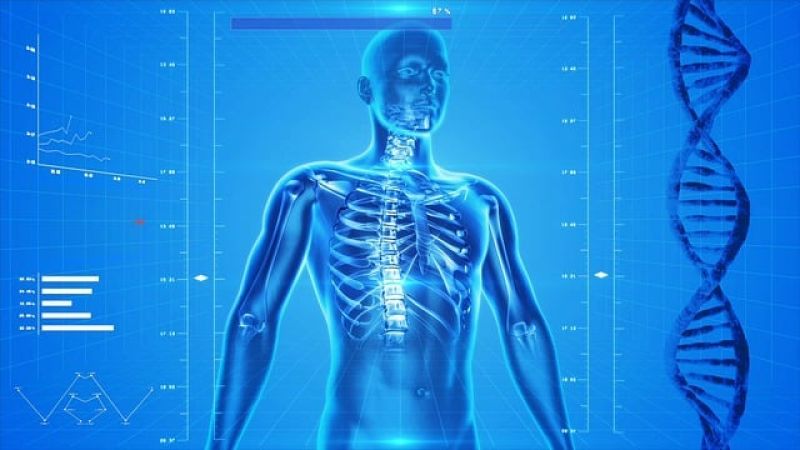
Understanding the Significance of Biomarker Testing in Modern Medicine
Biomarker testing has emerged as a crucial tool in modern medicine, revolutionizing our understanding of disease detection, prognosis, and treatment. By analyzing specific molecules or substances in the body, known as biomarkers, healthcare professionals can gain valuable insights into an individual’s health status, identify diseases at an early stage, and tailor treatment plans accordingly.
This article aims to provide a comprehensive overview of the significance of biomarker testing in modern medicine, exploring its definition, scientific basis, different types, testing procedures, impact on patient care, and future perspectives.
Defining Biomarker Testing
Biomarker testing involves the analysis of biological markers or indicators that reflect normal physiological processes, the presence of a disease, or the response to a specific treatment. These markers can be found in various bodily fluids, tissues, or genetic material, providing valuable information about an individual’s health status, disease progression, and response to therapy. Biomarkers can include proteins, enzymes, DNA, RNA, metabolites, hormones, and more.
When it comes to understanding the intricacies of biomarker testing, it is essential to delve into the science behind these markers. Biomarkers are often derived from complex biological processes, including genetic variations, alterations in gene expression, protein interactions, and metabolic pathways.
The Science Behind Biomarkers
The identification and validation of biomarkers involve extensive research using techniques such as genomics, proteomics, metabolomics, and imaging technologies. Genomics focuses on studying an individual’s complete set of DNA, including genes and their functions. Proteomics, on the other hand, examines the structure and function of proteins, which play crucial roles in various biological processes.
Metabolomics analyzes the small molecules, known as metabolites, present in bodily fluids or tissues. These metabolites are the products of cellular processes and can provide insights into the metabolic state of an individual. Imaging technologies, such as magnetic resonance imaging (MRI) or positron emission tomography (PET), allow researchers to visualize and assess specific anatomical or functional changes in the body.
By utilizing these advanced techniques, researchers can gain a deeper understanding of biomarkers and their significance in different medical contexts. These studies help determine whether a biomarker is specific to a particular condition, has diagnostic or prognostic value, and can be used for monitoring treatment response.
Types of Biomarkers in Medicine
Biomarkers can be classified into various categories based on their purpose in medicine. Diagnostic biomarkers are used to identify the presence or absence of a disease and aid in its early detection. These biomarkers can be instrumental in the timely diagnosis of conditions such as cancer, cardiovascular diseases, or infectious diseases.
Prognostic biomarkers provide information about the likely course and outcome of a disease, helping physicians make informed decisions regarding treatment strategies. For example, in cancer treatment, certain biomarkers can indicate the aggressiveness of the tumor and the likelihood of metastasis, allowing doctors to tailor treatment plans accordingly.
Predictive biomarkers assist in predicting a patient’s response to a particular therapy, facilitating personalized medicine and improving treatment outcomes. By analyzing specific biomarkers, healthcare professionals can determine whether a patient is likely to benefit from a particular medication or treatment approach. This enables the selection of the most effective treatment option for an individual, minimizing potential side effects and optimizing therapeutic success.
Overall, biomarker testing is a vital tool in modern medicine, providing valuable insights into an individual’s health status, disease progression, and treatment response. As research continues to advance, the identification and validation of new biomarkers will further enhance our ability to diagnose diseases early, predict outcomes, and deliver personalized care.
The Role of Biomarkers in Disease Detection
Biomarkers have played a pivotal role in disease detection, particularly in conditions such as cancer and cardiovascular diseases, where early diagnosis can significantly impact patient outcomes.
Early detection of diseases is crucial for effective treatment and improved patient outcomes. Biomarkers, which are measurable indicators of biological processes or conditions, have revolutionized disease detection and management. By analyzing specific molecules or genetic markers, healthcare professionals can identify the presence of diseases, assess their severity, monitor treatment response, and predict the risk of disease recurrence.
Biomarkers and Cancer Detection
Cancer biomarkers have transformed the field of oncology by enabling early diagnosis and personalized treatment strategies. These biomarkers can help identify the presence of specific types of cancer, assess tumor aggressiveness, monitor treatment response, and predict disease recurrence.
For instance, the detection of certain tumor markers in blood samples can aid in the early diagnosis of breast, prostate, or ovarian cancer. By measuring the levels of specific proteins or genetic mutations associated with these cancers, healthcare professionals can identify individuals at higher risk and initiate timely interventions. This early detection can significantly improve patient outcomes by enabling early treatment and increasing the chances of successful recovery.
Additionally, genetic biomarkers can provide valuable information regarding a patient’s risk of developing certain types of cancer. By analyzing an individual’s genetic profile, healthcare professionals can identify genetic mutations or variations that increase the susceptibility to cancer. This knowledge allows for targeted screening programs, preventive measures, and personalized treatment plans.
Biomarkers in Cardiovascular Diseases
In cardiovascular diseases, biomarkers have proven to be invaluable tools for diagnosis, risk assessment, and treatment monitoring. Conditions such as myocardial infarction (heart attack) and heart failure require prompt and accurate diagnosis to initiate appropriate interventions.
Biomarkers such as troponin, creatine kinase, and brain natriuretic peptide (BNP) are commonly used in the diagnosis of cardiovascular diseases. Troponin, a protein released into the bloodstream during heart muscle damage, is a highly sensitive and specific biomarker for myocardial infarction. Creatine kinase is another enzyme that is elevated in the blood following heart muscle damage and is useful in diagnosing heart attacks.
Brain natriuretic peptide (BNP) is a hormone secreted by the heart in response to increased pressure or stress. Elevated levels of BNP can indicate heart failure and help clinicians assess the severity of the condition. By monitoring the levels of these biomarkers over time, healthcare professionals can evaluate disease progression, adjust treatment plans, and predict the risk of adverse cardiovascular events.
Furthermore, biomarkers can guide the selection of appropriate treatment strategies for cardiovascular diseases. For example, certain biomarkers can help identify individuals who are likely to benefit from specific medications or interventions. This personalized approach to treatment improves patient outcomes and reduces the risk of adverse effects.
In conclusion, biomarkers have revolutionized disease detection, particularly in cancer and cardiovascular diseases. By providing valuable insights into disease presence, severity, treatment response, and prognosis, biomarkers enable healthcare professionals to make informed decisions and tailor treatment plans to individual patients. Continued research and advancements in biomarker technology hold great promise for further improving disease detection and management, ultimately leading to better patient outcomes.
Biomarker Testing Procedures
The process of biomarker testing involves various procedures that depend on the type of biomarker being analyzed and the clinical question being addressed. Biomarker testing is a crucial component of modern medicine, providing valuable information about a patient’s health status and aiding in the diagnosis, treatment, and monitoring of various diseases. Here are some of the different procedures used in biomarker testing.
Blood Tests for Biomarkers
Blood tests are frequently used for biomarker analysis due to their accessibility and ease of collection. These tests can measure biomarkers such as specific proteins, hormones, or genetic material circulating in the bloodstream.
One example of a blood test for biomarkers is the measurement of prostate-specific antigen (PSA) for prostate cancer screening. PSA is a protein produced by the prostate gland, and elevated levels may indicate the presence of prostate cancer. Regular PSA testing is recommended for early detection and monitoring of prostate cancer in men.
Another application of blood tests for biomarkers is the detection of circulating tumor DNA (ctDNA) in certain cancers. ctDNA refers to fragments of tumor DNA that are released into the bloodstream. By analyzing ctDNA, doctors can monitor treatment response, detect minimal residual disease, and identify genetic mutations that may guide targeted therapies.
Imaging Tests for Biomarkers
In some cases, imaging technologies can be utilized to identify and measure specific biomarkers. These tests provide valuable visual information about the presence and characteristics of biomarkers within the body.
One commonly used imaging test for biomarkers is positron emission tomography (PET) scans. PET scans1 involve the injection of a radioactive tracer into the body, which is taken up by cells with high metabolic activity. By measuring the distribution of the tracer, PET scans can help visualize and quantify levels of glucose metabolism or specific receptors in tumor cells.
This information is particularly useful in cancer diagnosis, staging, and treatment response assessments. For example, PET scans can help determine the extent of tumor spread, evaluate treatment effectiveness, and guide the selection of targeted therapies.
Overall, biomarker testing procedures encompass a wide range of techniques and technologies. From blood tests that measure specific proteins or genetic material to imaging tests that visualize biomarkers within the body, these procedures play a crucial role in modern healthcare. By providing valuable insights into disease processes and treatment responses, biomarker testing continues to advance medical knowledge and improve patient care.
The Impact of Biomarker Testing on Patient Care
Biomarker testing has significantly influenced patient care, leading to more personalized and effective treatment approaches.
Personalized Medicine and Biomarkers
“By analyzing your genes, doctors can identify certain drugs that may be dangerous or completely ineffective for you, and they can calculate personalized dosages that match your DNA.”
Jane Ades, National Human Genome Research Institute (NHGRI)
Biomarkers play a central role in personalized medicine2, where treatment strategies are tailored based on an individual’s unique biological characteristics. By identifying biomarkers associated with specific diseases or treatment responses, clinicians can make informed decisions regarding the most suitable therapies for each patient, maximizing treatment efficacy and minimizing adverse effects.
Biomarkers and Prognostic Evaluation
Biomarkers also enable accurate prognostic evaluation, providing insights into disease progression and potential outcomes. This information can guide treatment decisions and help patients and their families better understand the expected course of the disease.
Future Perspectives of Biomarker Testing
As research continues to expand our understanding of diseases and their underlying mechanisms, biomarker testing is poised for exciting advancements in the future.
Advancements in Biomarker Research
Ongoing research efforts aim to identify novel biomarkers and refine existing ones, allowing for greater specificity, sensitivity, and reliability in disease detection and monitoring. The development of innovative technologies and techniques, such as liquid biopsies and next-generation sequencing, holds tremendous potential in expanding the repertoire of biomarkers available for clinical use.
Challenges and Limitations in Biomarker Testing
While biomarker testing has transformed modern medicine, it also faces challenges and limitations. Some biomarkers may lack specificity, leading to false-positive or false-negative results. Additionally, variability in laboratory protocols, equipment, and data analysis can impact the reproducibility and standardization of biomarker testing. Continuous efforts are required to address these challenges and ensure the reliable implementation of biomarker testing in clinical practice.
Conclusion
In conclusion, biomarker testing has revolutionized modern medicine by providing valuable insights into disease detection, prognosis, and treatment response. By enabling personalized medicine, biomarkers have paved the way for more effective and individualized patient care. As research advances and technologies improve, medical professionals can expect biomarker testing to play an increasingly significant role in improving patient outcomes and shaping the future of medicine. Test your longevity biomarker panels with AgingSOS®. Order today to discover your overall wellness status.
Lastly, if you’re interested in going deeper on health-related content, here are a few of our recent posts that you may want to read:
- 9 Powerful Benefits of Optimizing Your NAD
- What Does Peak Performance Look Like?
- Why Optimized, Precision Medicine is the Future
- Andrew Huberman is Wrong About NAD, NAD+ precursor & Longevity
Referenced Sources:
Read More














